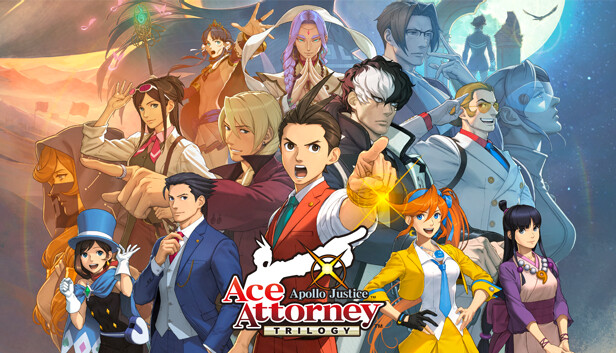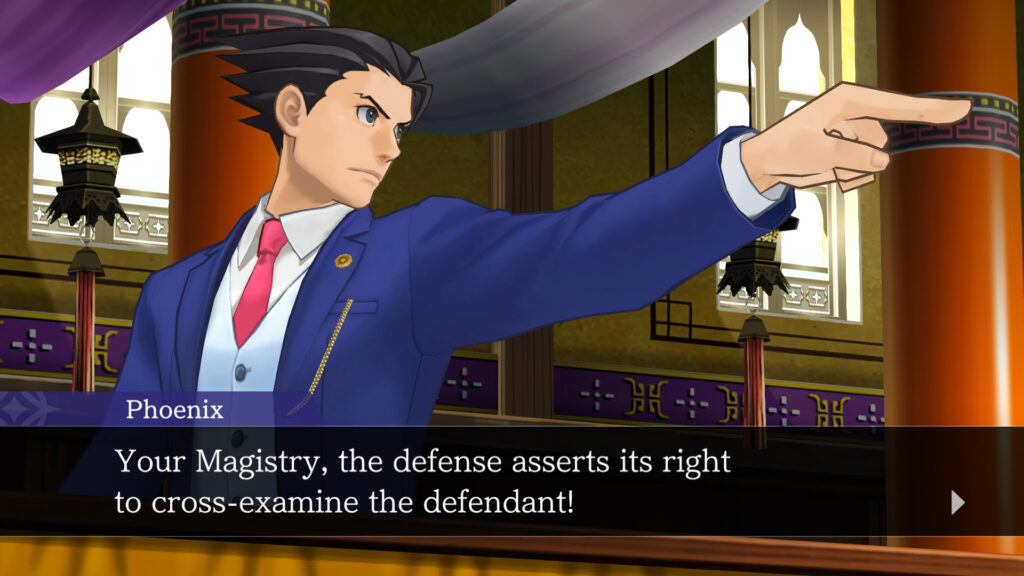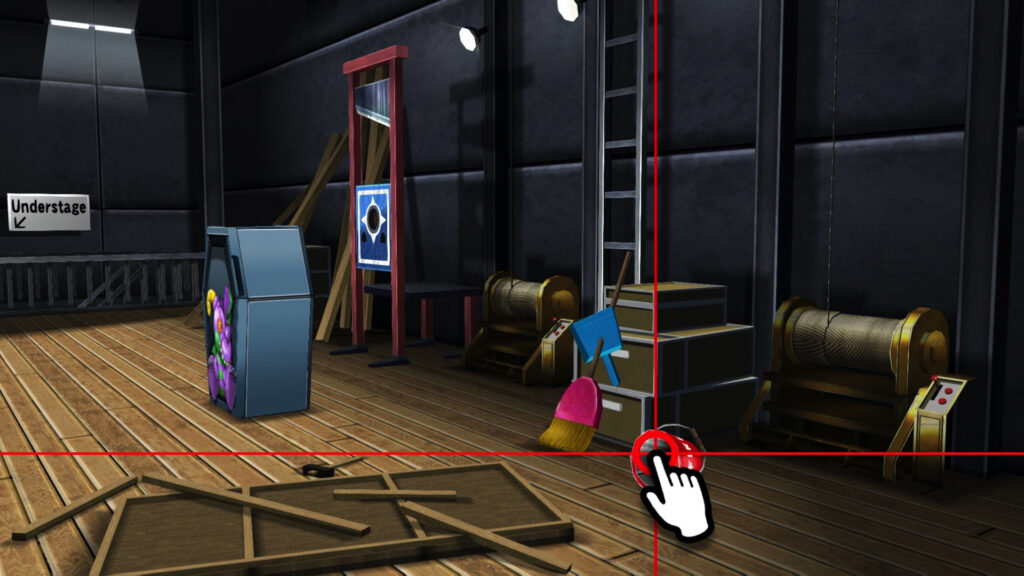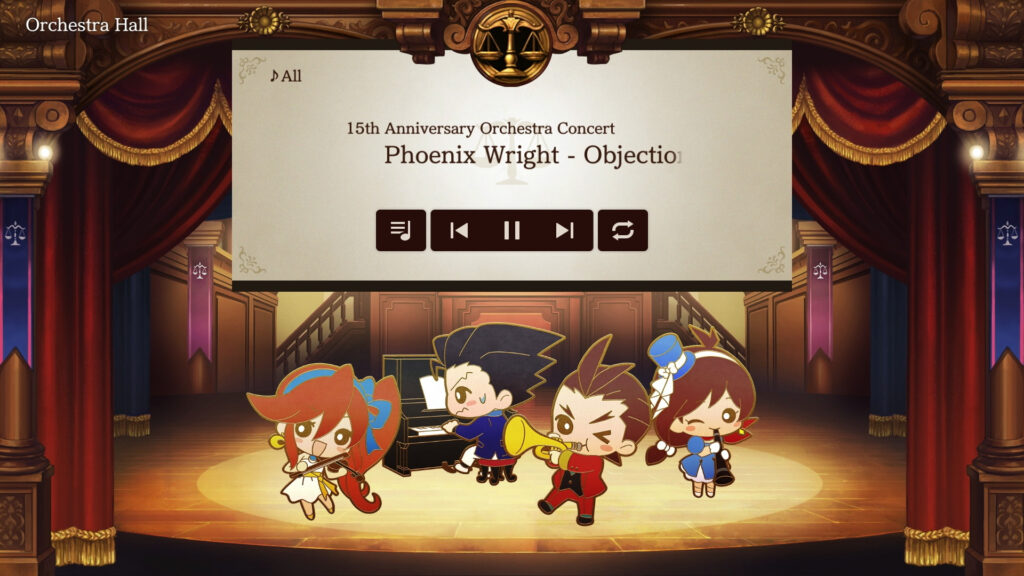
Developer: CAPCOM
Publisher: CAPCOM
Platform: PC, Switch, PS4, Xbox One
Tested on: PS4
Ace Attorney: Apollo Justice Trilogy – Review
After rereleasing the Phoenix Wright Trilogy over and over again, it seems like someone at Capcom finally remembered that there are more classic Ace Attorney games than just the first three in the series. The arrival of Ace Attorney: Apollo Justice Trilogy is a welcome one, especially since two out of the three included games here were previously exclusive to the now-closed 3DS eShop. Whether you’ve missed out on the original releases or simply want to revisit your favorite court cases, it’s great to see that these games are getting a new lease on life on modern platforms. Is picking up the Apollo Justice Trilogy an open-and-shut case or are there any objections here?
Story
Calling this collection of games the Apollo Justice Trilogy is a bit of a misnomer, as Apollo Justice himself only takes center stage in the first game, Apollo Justice: Ace Attorney. The second title, Dual Destinies, introduces a brand new main character in the form of Athena Cykes, with the third one, Spirit of Justice, putting the spotlight firmly back on good old Phoenix Wright himself. Granted, Apollo has his part to play in all three of these games, and he’s quite a popular character, so the title does make sense from a marketing perspective. That said, when Apollo Justice: Ace Attorney debuted on the Nintendo DS back in 2008, it sparked some controversy among the Ace Attorney fandom because of the shift to a new lead character. In hindsight, it made sense, as over the course of three games, Phoenix Wright had grown from a bumbling rookie into a respectable defense attorney, and the silly nature of some cases fits better with less-experienced lawyers at the helm.
Taking place seven years after Trials and Tribulations, the previous Ace Attorney game, Apollo Justice: Ace Attorney starts with Apollo having to defend Phoenix in a murder case. It’s an interesting kickoff, and it establishes the student-mentor relationship between the two, something that is explored throughout the trilogy. Central to the other two games is the Wright Anything Agency, Phoenix’s own law office where he works as the senior attorney, with Apollo and Athena as his employees as they take on a variety of clients and defend their interests in court. We won’t spoil individual cases, as the whole point is to figure out things for yourself, but we can tell you that several outlandish stories are waiting for you, from dealing with a time travel mystery to defending a literal killer whale and her pirate-themed trainer. Just like with the previous trilogy, the games featured here are interconnected, with recurring characters and callbacks to previous games, so we definitely recommend playing the first three games before taking these on.
Graphics
Previous releases of the games included here originally appeared on the DS and the 3DS, as well as mobile devices; not exactly graphical powerhouses. For this re-release, all three games received a visual overhaul, although they weren’t recreated from the ground up. This is especially clear with Apollo Justice, as the game’s characters appear here as upscaled sprites rather than the animated models appearing in the other two games. Dual Destinies and Spirit of Justice also include fully animated cutscenes in the same animation style as the Ace Attorney anime, whereas animations in Apollo Justice are on the basic side. That’s not to say that Apollo Justice looks bad, but the contrast between it and the 3DS releases is very noticeable.
Sound
The biggest “upgrade” the trilogy received comes in the form of the new soundtrack. The Ace Attorney games have always been lauded for their music, and here, the familiar tunes from the games included have never sounded more crisp. There are even two entirely new tracks included here. Unfortunately, the games haven’t received the full voice-acting treatment, although you’ll still be able to hear Apollo’s chords of steel as he belts out objections in court. The few voice lines included here sound better than ever, as do the familiar sound effects.
Gameplay
With the exception of Ace Attorney Investigations: Miles Edgeworth and its sequel, the Ace Attorney games have always stuck to the same formula, and for good reason: it simply works. Taking control of one of either Phoenix, Apollo, or Athena, you’ll have to defend some poor sap in court as they are accused of murder. Things are never what they seem, however, and you’ll need to figure out the truth by alternating between heated legal battles in court and visiting crime scenes to gather evidence and testimonies. Each of the three attorneys also has access to a special ability they can use at key moments: Phoenix can see mental barriers known as psyche locks and undo them using his magatama charm, Apollo is able to perceive body language, and Athena has Widget, a computer built into her necklace, with which she can analyze witnesses’ emotions on a mood matrix, to see if they match up to their statements.
Court segment gameplay mostly takes on the form of a visual novel. However, there is more interactivity here than you’d typically expect from the genre as you press witnesses to expand their statements and present evidence to contradict what they are saying. Making mistakes here results in strikes, and if you take too many strikes, you lose the case and it’s game over. Investigating crime scenes takes on the form of point-and-click gameplay as you scour environments for clues, interact with objects and NPCs, and even solve very simplistic puzzles. There are a whopping 16 cases here, comprising the 14 cases that make up the original three games as well as two cases previously released as DLC. Of course, not every case is as strong, with some of them considered among the very worst in the series -looking at you, Turnabout Corner-, but the issues with those cases were present in the original releases, and this trilogy offers a faithful recreation rather than aim to improve the lesser stories.
Apart from the audiovisual upgrades, the three games included here are pretty much identical to their original versions, with one notable exception involving a spoiler having been removed in the Turnabout Academy case. So if you happen to own a 3DS and copies of the original games, or the mobile versions, you might figure there aren’t any reasons to double dip. However, in addition to the games, the Apollo Justice Trilogy brings along a veritable treasure trove of bonus content: there is a music player that lets you listen to your favorite tracks, an art gallery, and even a small animation studio where you can play around with character models’ court animations. You can even replace the background with a green or blue screen here, so that you can use these animations in your own YouTube videos, for example. This latter feature is probably most useful for those playing on PC, but it’s a nice inclusion even on consoles.
This brings us to perhaps the most divisive part of the collection: value for money. At €49.99, the Apollo Justice Trilogy is a significant chunk more expensive than the €29.99 Phoenix Wright Trilogy, and even the Great Ace Attorney games are cheaper, although that bundle comprises only two games. If we break down the Apollo Justice Trilogy into three separate €15 games and slap on an additional €4.99 for the bonus content, we’d say the collection feels fairly priced, although you’re still looking at re-releases of old (3)DS titles. If you own the original releases, we’d suggest waiting for a discount, as there isn’t enough here to justify the price point. If you don’t own the original games, then we’d say you’re getting enough bang for your buck, although if you’re not in a hurry, we’d just like to mention that we’ve seen the previous Ace Attorney titles go on sale fairly regularly. Make of that what you will.
Conclusion
With remastered visuals and audio, and a slew of bonus content, the Apollo Justice Trilogy definitely does these classic titles justice. Not every case included here is as strong, but overall, all three titles included are worth playing, and the addition of bonus content is the icing on the cake. Longtime fans of the series may have a hard time justifying double dipping here, but if you’re new to these games or if you can pick them up at a discount, this is a fantastic addition to your library after you’ve finished the Phoenix Wright Trilogy. Now, can we have the Investigations games next, Capcom? Pretty please?










No Comments